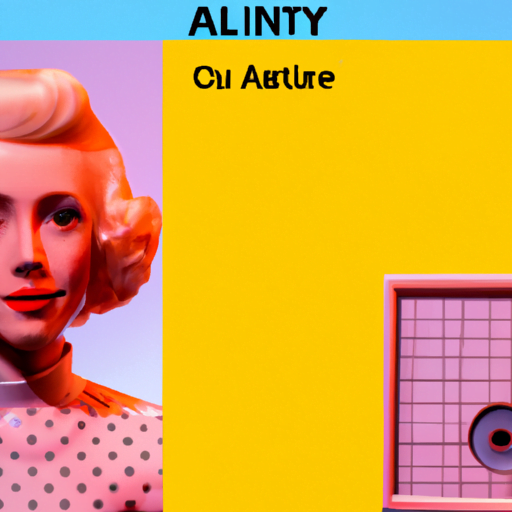
-
Table of Contents
- AI’s Role in Gamifying Learning through Interactive Design
- The Power of Gamification in Learning
- AI-Powered Adaptive Learning Platforms
- AI-Driven Virtual Reality (VR) and Augmented Reality (AR) in Education
- Challenges and Ethical Considerations
- Data Privacy and Security
- Algorithmic Bias
- Overreliance on Technology
- The Future of AI in Gamified Learning
- Conclusion
AI’s Role in Gamifying Learning through Interactive Design

Artificial Intelligence (AI) has revolutionized various industries, and education is no exception. With the advent of AI, traditional learning methods are being transformed into interactive and engaging experiences. One such approach is gamification, which leverages AI to create immersive learning environments that motivate and inspire learners. In this article, we will explore the role of AI in gamifying learning through interactive design, examining its benefits, challenges, and potential future developments.
The Power of Gamification in Learning
Gamification is the integration of game elements and mechanics into non-game contexts, such as education. By incorporating elements like points, badges, leaderboards, and challenges, gamification enhances learner engagement, motivation, and knowledge retention. It taps into the natural human inclination for competition, achievement, and rewards, making the learning process more enjoyable and effective.
When AI is applied to gamification, it enables personalized and adaptive learning experiences. AI algorithms analyze learner data, such as performance, preferences, and progress, to tailor the content and challenges to individual needs. This individualization ensures that learners receive targeted instruction and support, maximizing their learning outcomes.
AI-Powered Adaptive Learning Platforms
Adaptive learning platforms are at the forefront of AI-powered gamified learning. These platforms use AI algorithms to continuously assess learners’ abilities and adjust the difficulty and content accordingly. By analyzing data from various sources, such as quizzes, simulations, and user interactions, AI can identify knowledge gaps and provide personalized recommendations for improvement.
For example, Duolingo, a popular language learning platform, uses AI to adapt its lessons based on learners’ performance. The platform tracks learners’ progress, identifies areas of weakness, and provides targeted exercises to address those weaknesses. This personalized approach keeps learners engaged and motivated, leading to better language acquisition.
Another notable example is Khan Academy, an online learning platform that offers personalized educational content across various subjects. AI algorithms analyze learners’ responses to questions and provide real-time feedback and guidance. This adaptive learning approach ensures that learners receive appropriate challenges and support, promoting a deeper understanding of the material.
AI-Driven Virtual Reality (VR) and Augmented Reality (AR) in Education
Virtual Reality (VR) and Augmented Reality (AR) are powerful tools for creating immersive learning experiences. When combined with AI, these technologies can enhance gamified learning by providing realistic simulations and interactive scenarios.
For instance, medical students can use VR to practice surgical procedures in a safe and controlled environment. AI algorithms can analyze their performance, provide feedback, and suggest areas for improvement. This combination of VR, AI, and gamification not only enhances learning outcomes but also reduces the risks associated with real-life training.
AR, on the other hand, overlays digital information onto the real world, creating interactive and engaging experiences. AI algorithms can analyze learners’ interactions with AR content and provide personalized feedback and guidance. This combination has immense potential in fields like architecture, engineering, and design, where learners can visualize and manipulate virtual objects in real-world contexts.
Challenges and Ethical Considerations
While AI-powered gamified learning offers numerous benefits, it also presents challenges and ethical considerations that need to be addressed.
Data Privacy and Security
AI relies on vast amounts of data to personalize learning experiences. However, this raises concerns about data privacy and security. Educational institutions and platforms must ensure that learners’ data is protected and used responsibly. Transparent data policies, secure storage, and anonymization techniques are essential to maintain trust and safeguard learners’ information.
Algorithmic Bias
AI algorithms are not immune to bias, and this can have significant implications in gamified learning. Biased algorithms may perpetuate stereotypes, reinforce inequalities, or provide unfair advantages or disadvantages to certain learners. It is crucial to continuously monitor and evaluate AI algorithms to mitigate bias and ensure equitable learning experiences for all.
Overreliance on Technology
While AI-powered gamified learning can be highly effective, it should not replace human interaction and guidance entirely. Learners still benefit from the expertise and support of teachers and mentors. It is essential to strike a balance between technology and human involvement to provide a holistic and well-rounded learning experience.
The Future of AI in Gamified Learning
The potential of AI in gamified learning is vast, and ongoing advancements in technology will continue to shape its future. Here are some potential developments to look forward to:
- Emotion recognition: AI algorithms that can detect learners’ emotions and adapt the learning experience accordingly, providing personalized support and motivation.
- Collaborative gamification: AI-powered platforms that enable collaborative learning experiences, fostering teamwork, communication, and problem-solving skills.
- Virtual mentors: AI-powered virtual mentors that provide personalized guidance and support, answering learners’ questions and offering tailored feedback.
- Seamless integration: AI seamlessly integrated into existing educational tools and platforms, making gamified learning accessible to a wider audience.
Conclusion
AI’s role in gamifying learning through interactive design has the potential to revolutionize education. By leveraging AI algorithms, adaptive learning platforms can provide personalized instruction and support, enhancing learner engagement and knowledge retention. VR and AR, combined with AI, create immersive and interactive experiences that simulate real-world scenarios. However, it is crucial to address challenges such as data privacy, algorithmic bias, and the need for human involvement. As technology continues to advance, the future of AI in gamified learning holds exciting possibilities for personalized, engaging, and effective education.
